This story is part of Samsung Event, CNET’s collection of news, tips and advice around Samsung’s most popular products.
Vivo’s newest flagship phone line arrived on the heels of the company’s biggest Android rival. The Chinese phone maker announced the new X90 and X90 Pro on Friday, just days after Samsung’s Galaxy S23 launch. The Vivo X90 Pro’s standout features are its 120-watt charger and the 1-inch Sony IMX 989 main camera sensor.
I had a chance to use the Vivo X90 Pro for nearly a week. I tested the camera, battery life and performance, among other features. The camera serves up a versatile range of shots with good clarity during the day and night. Photos have a lovely depth of field.
Some images didn’t turn out as bright as I’d expected, however, which was a surprise since this phone is equipped with a 1-inch sensor. Larger sensors are designed to allow more light in, and therefore are meant to allow for the production of brighter, clearer images. And yet, as we know from the Sony Xperia Pro-I and Xiaomi 12S Ultra, a 1-inch camera sensor isn’t actually an inch big. But it is on the larger size for a phone camera.
For all the hype Vivo created around the camera, my favorite feature was fast charging, thanks to the 120-watt charger included in the box. I loved the convenience of being able to charge my phone fully in half an hour. A bundled fast charger distinguishes this phone from those made by Samsung and Apple, both of which have stopped including chargers in the box with their phones. Not only does Vivo offer a bundled charger, but that charger is impressively efficient when revitalizing a dead battery.
Apart from the camera and battery, the Vivo X90 Pro has all the hallmark features of a high-end flagship in 2023. There’s a 6.78-inch AMOLED display, three cameras headlined by two 50-megapixel cameras, a large battery and zippy 120-watt charging. Xiaomi’s 12T Pro has 120-watt fast charging too — it was my favorite feature on that phone, despite its 200-megapixel camera.
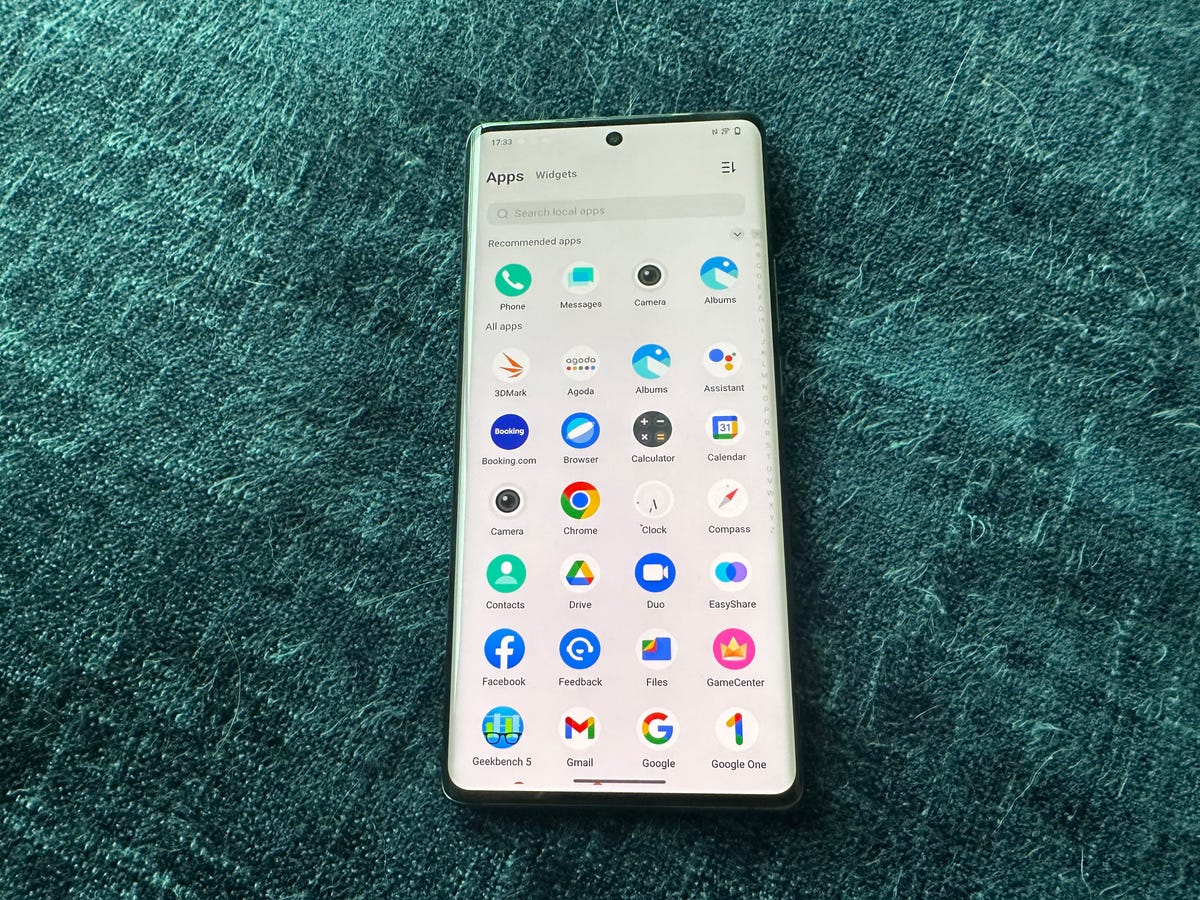
The Vivo X90 Pro has an app drawer.
Sareena Dayaram/CNET
It’s worth pointing out that the Vivo X90 Pro runs on the Mediatek Dimensity 9200 chip. That’s a divergence from Samsung’s latest lineup of Galaxy S23 phones, which run on Qualcomm’s Snapdragon 8 Gen 2. It also has an IP64 rating for water- and dust-resistance, which means it’s protected fully from dust, but only from sprays of water. I wouldn’t be comfortable carrying this device around in the rain or by the poolside. Take note, this is a lower rating than the IP68 rating on Samsung’s phones, which can withstand being submerged under water.
Pricing information isn’t available at this time, but expect an international release in parts of Europe and Asia for the X90 series. A US release isn’t planned. For reference, last year’s Vivo X80 Pro cost £1,199 (which converts roughly to $1,460, AU$2,085) and the new Galaxy S23 Plus costs £1,049.
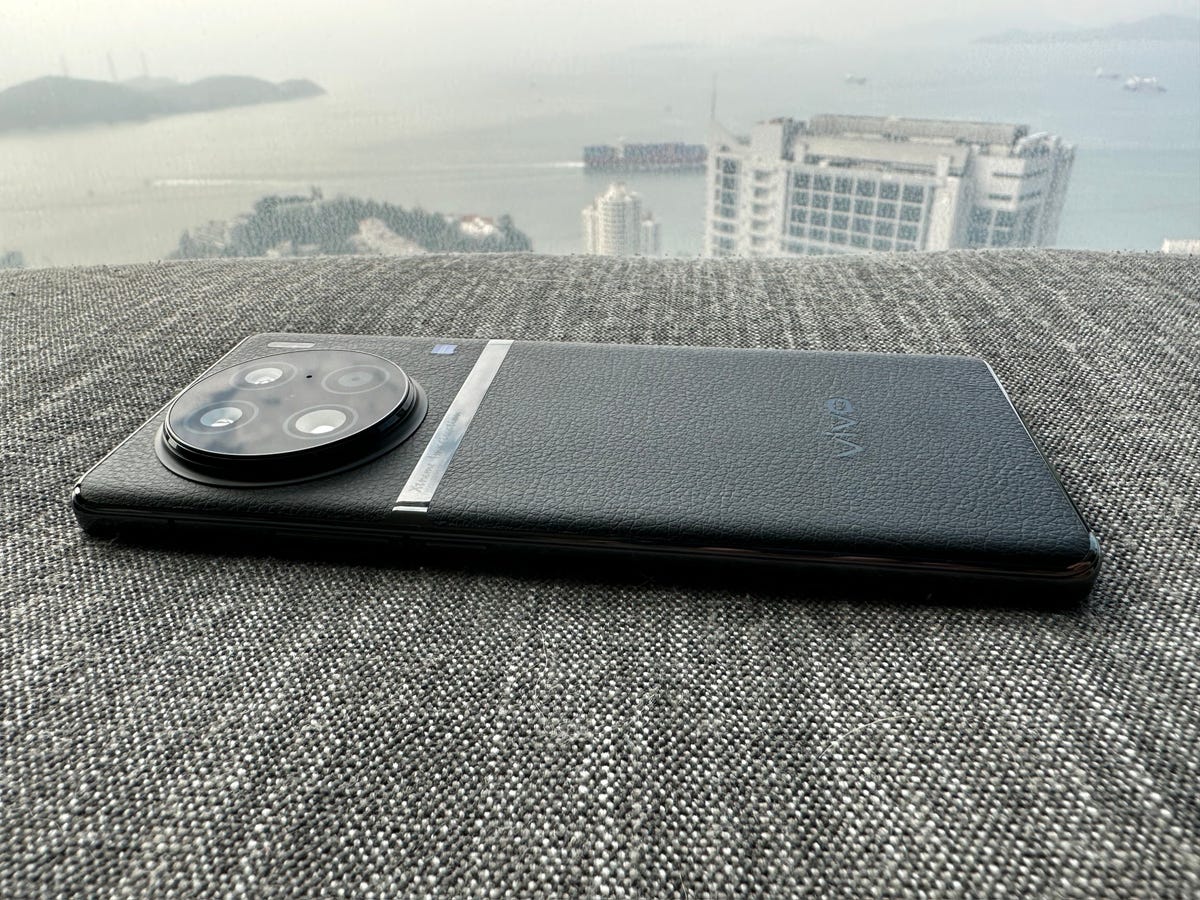
Sareena Dayaram/CNET
The Vivo X90 Pro’s odd design on the back
For a phone in 2023, the X90 Pro’s design appears relatively ordinary from the front. The rectangular display has curved edges and a punch-hole cutout in the center housing the selfie camera. But flip it over, and you’ll see a narrow bar running through the width of the chassis (below the camera module).
No, it’s not a camera bar as seen on Google’s Pixel 7 lineup, it’s simply a flat bar emblazoned with the words “Xtreme Imagination” running across the rear of the phone. Frankly, it makes for a bizarre choice that undermines the overall sleek design of the phone. Above this perplexing bar, is the circular camera bump housing three lenses. There’s also bold Vivo branding at the bottom, which I don’t particularly take to but I can understand why it’s there.
The Vivo X90 Pro’s cameras have Zeiss lenses
Vivo touts this phone as a piece of pro photography equipment in your pocket, flexing its camera partnership with Zeiss, a 176-year-old company considered a pioneer in optical photography. There are three cameras on the X90 Pro: a 50-megapixel main camera, a 50-megapixel portrait camera and a 12-megapixel wide-angle lens. The Vivo even has Zeiss’ famous T-star coating on the lenses. The only other phones currently sold with the coating are from Sony Xperia’s lines.
Photos from the phone look respectable. I love how portrait photos come out with a dramatic bokeh effect. However, as I said earlier, some photos turned out to be more shadowy than I’d expected, given the sensor size. You can see the cameras in action below.

Notice the dramatic bokeh in this portrait shot of my dog. Unlike some phones, with more subtle bokeh, it’s tricky to tell what’s in the background.
Sareena Dayaram/CNET
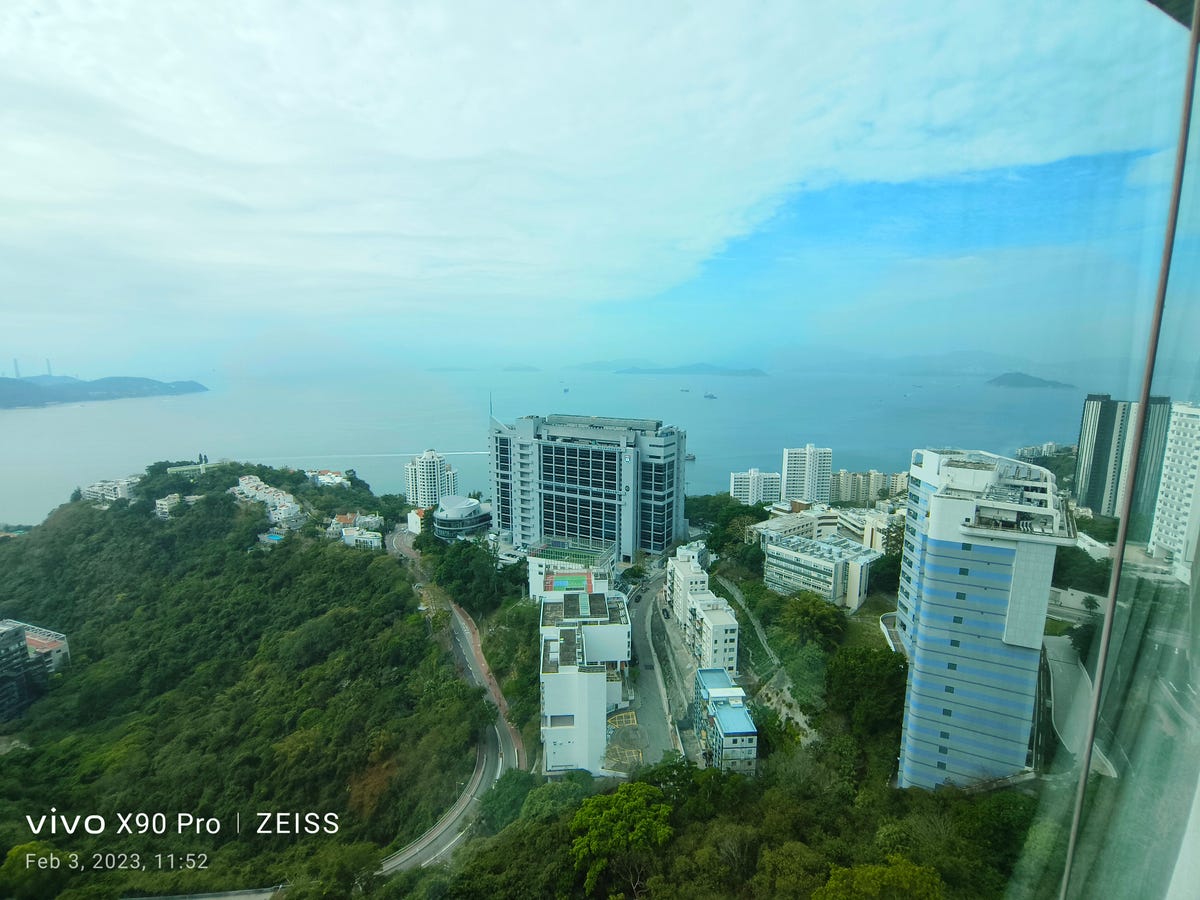
Example of an ultrawide photo. Notice the bright blue skies and the blue water.
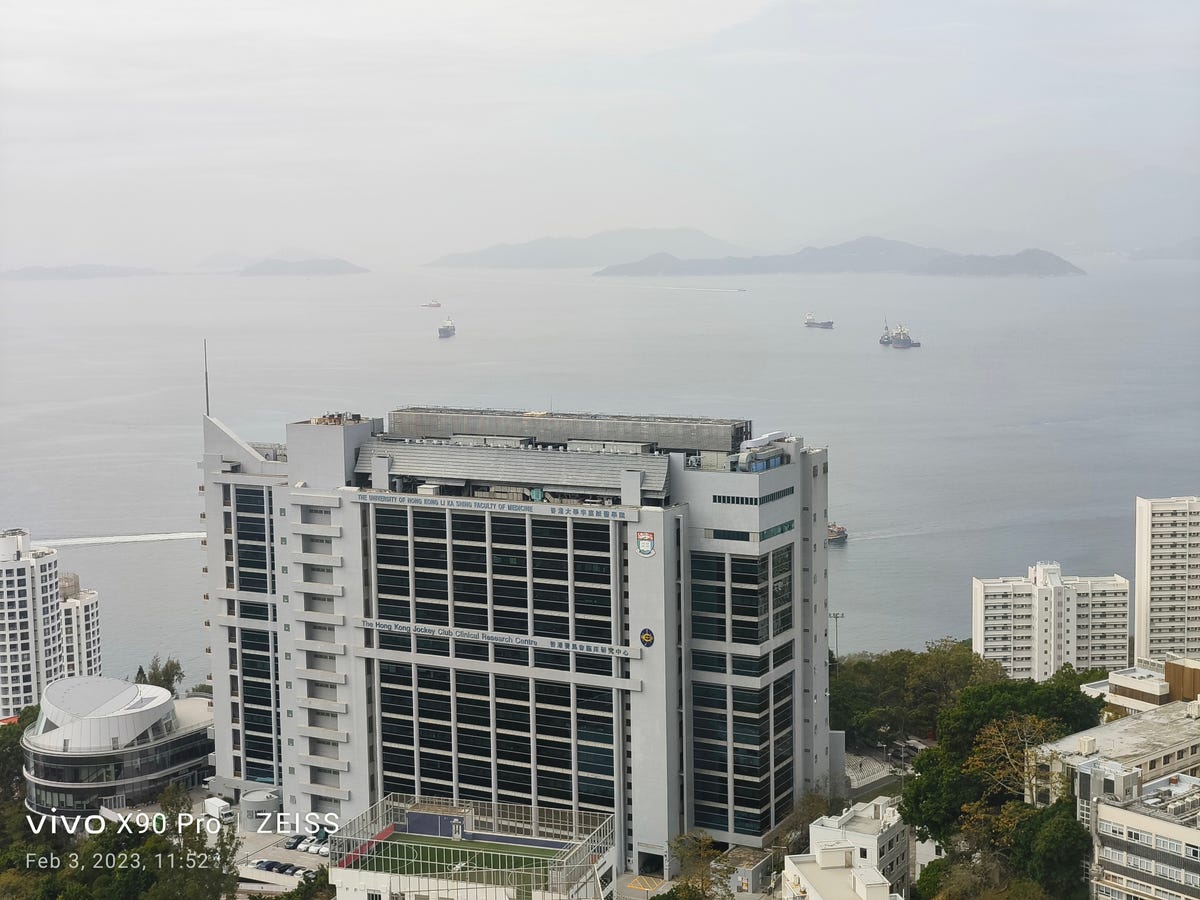
As I zoomed in, the color of the ocean and sky in the image changed, indicating color inconsistency between the cameras.
Sareena Dayaram/CNET

Example of 40x digital zoom. The water looks gray, unlike the blue seas in the photo above.
Sareena Dayaram/CNET

Taken on an overcast day. This picture is vibrant and has great texture.
Sareena Dayaram/CNET

This photo of my dog Rocky taken in a dark room.
Sareena Dayaram/CNET

My bowl of noodles looks good in this photo but the colors aren’t true to life. It’s a subtle difference, however.
Sareena Dayaram/CNET
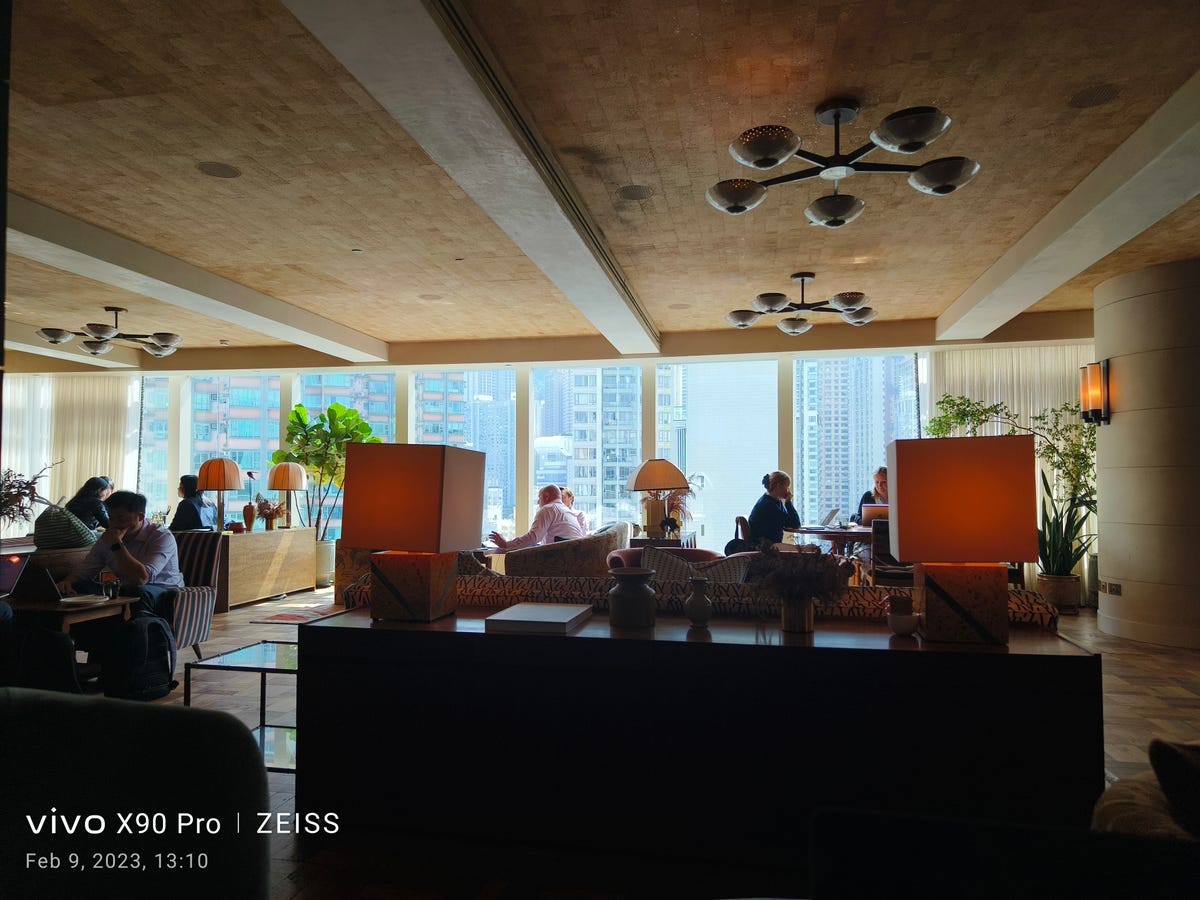
This photo was taken in a dim room facing large windows with the sun pouring through.
Sareena Dayaram/CNET
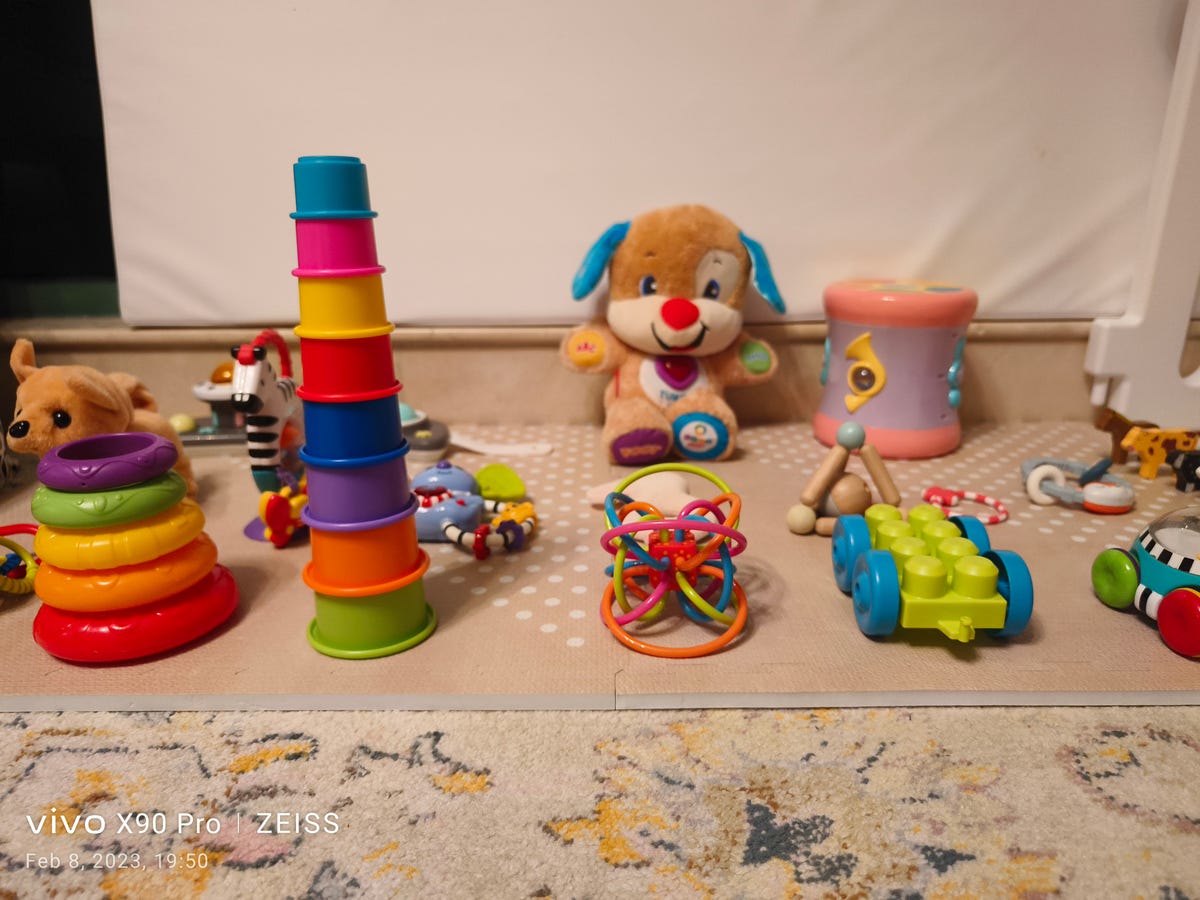
Notice the color of the toys and the white balance the Vivo chose.
Sareena Dayaram/CNET
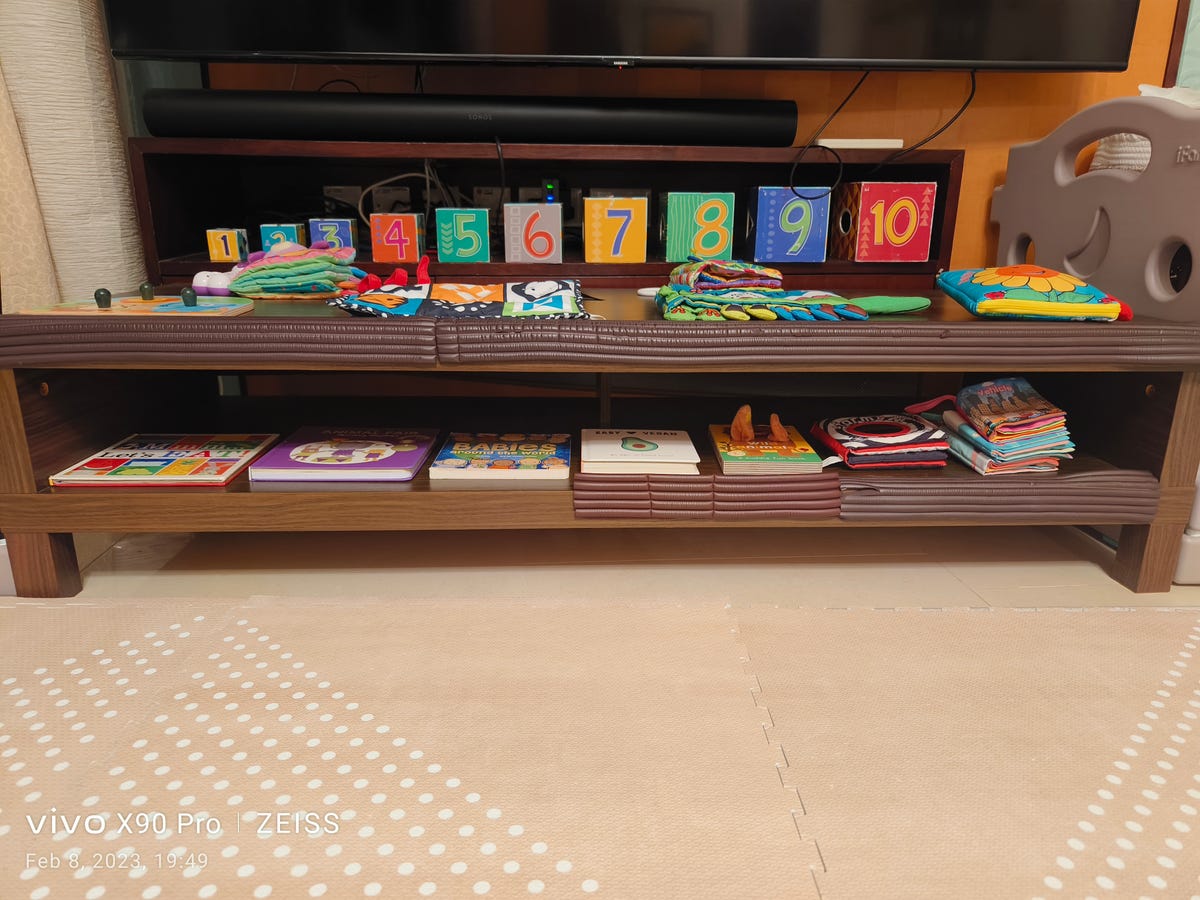
In this image, the Vivo did a better job with white balance.
Sareena Dayaram/CNET

I took this selfie in a room facing large windows.
Sareena Dayaram/CNET
Vivo X90 Pro battery
The X90 Pro has a 4,780-mAh battery, which can be replenished with a bundled 120-watt charger or a 50-watt wireless charger (sold separately). Vivo claimed the X90 Pro can hit a full charge in 29 minutes — and I can confirm that this is true based on the two times I charged the device from a dead battery (on balanced mode). This beats the charge time of the presumably pricier Galaxy S23 Ultra, which hits a 91% charge for its slightly larger battery in 30 minutes.
The Vivo X90 offers two charging modes, fast charging and the aforementioned balanced mode, which is the default setting and is ideal for everyday charging, according to Vivo. Fast mode is supposed to refill the phone’s battery to 50% in 8 minutes and 10 seconds, the company says. It’s a feature that I’d reserve for critical situations when I need to charge up a dead phone ASAP.
In my experience, the battery was long-lasting and not vulnerable to easy drainage. I performed CNET’s standardized battery endurance test, where I live streamed a video, hopped on a video call, scrolled through social media, played mobile games and listened to music on YouTube — all within 45 minutes at 50% brightness. In that time frame, the battery life went from 96% to 87%, which indicates the battery having a good longevity.
Vivo X90 Pro processor is from MediaTek
Vivo swapped out Qualcomm’s Snapdragon 8 Gen 1 processor, which powered last year’s Vivo X80 series for TSMC’s MediaTek Dimensity 9200 chip. By comparison, the Galaxy S23 runs on a customized version of the the Snapdragon 8 Gen 2 — the same chip Vivo reserved for its highest end Vivo X90 Pro Plus phone.
The Dimensity 9200 is supposed to offer more efficient power consumption and faster processing. It’s backed up by 12GB RAM and 256GB of storage. In my experience, the X90 Pro ran smoothly and seamlessly whether I was streaming YouTube videos, chatting over video call or playing mobile games. You can see how it stacks up against some iPhone 14 models and the Galaxy S23 in our performance tests below.
Geekbench V.5.0 single-core
Note:
Longer bars indicate better performance
Geekbench V.5.0 multicore
Note:
Longer bars indicate better performance
3D Mark Wildlife Extreme
Note:
Higher numbers are better
What Vivo changed in the X90 Pro
Vivo changed an array of features from last year’s Vivo X80 Pro. Apart from swapping out the chip from Qualcomm to a Mediatek, Vivo ditched the ultrasonic fingerprint reader, telephoto camera and reduced display resolution. The ultrasonic fingerprint under-screen reader (3D Sonic Max ), which has a larger active area and requires only a single tap to set up, set the X80 Pro apart from a number of Android flagships, so was a disappointment to see it go. The X90 Pro has an optical in-screen fingerprint reader instead which worked fine.
Should you buy the Vivo X90 Pro?
The Vivo X90 Pro is a solid Android phone — you can’t really go wrong with its dependable cameras, fast performance and that sweet fast charging. But since we don’t have a price just yet for international markets, it’s hard to say whether it’s a good buy in terms of value. The Vivo X90 Pro squarely competes against the Galaxy S23. It has faster charging than most if not all of its Android rivals and also includes an inbox charging brick, which the Galaxy S23 series lacks. But the Galaxy S23 series has a higher IP rating and a telephoto camera, which the Vivo X90 pro doesn’t. It really depends on your individual needs.
How we test phones
Every phone tested by CNET’s reviews team was actually used in the real world. We test a phone’s features, play games and take photos. We examine the display to see if it’s bright, sharp and vibrant. We analyze the design and build to see how it is to hold and whether it has an IP-rating for water resistance. We push the processor’s performance to the extremes using both standardized benchmark tools like GeekBench and 3DMark, along with our own anecdotal observations navigating the interface, recording high-resolution videos and playing graphically intense games at high refresh rates.
All the cameras are tested in a variety of conditions from bright sunlight to dark indoor scenes. We try out special features like night mode and portrait mode and compare our findings against similarly priced competing phones. We also check out the battery life by using it daily as well as running a series of battery drain tests.We take into account additional features like support for 5G, satellite connectivity, fingerprint and face sensors, stylus support, fast charging speeds, foldable displays among others that can be useful. And we of course balance all of this against the price to give you the verdict on whether that phone, whatever price it is, actually represents good value.
Vivo X90 Pro specs
| Vivo X90 Pro | |
|---|---|
| Display size, resolution, brightness | 6.78-inch AMOLED; 1,260×2,800 pixels (FHD Plus) |
| Pixel density | 388ppi |
| Dimensions (Inches) | 6.46 x 2.93 x 0.37in |
| Dimensions (Millimeters) | 164.07 x 74.53 x 9.34mm |
| Weight (Grams, Ounces) | 214.85 g (7.58 oz) |
| Mobile software | Android 13 |
| Camera | 50-megapixel (main), 50-megapixel (portrait), 12-megapixel (wide-angle) |
| Front-facing camera | 32-megapixel |
| Video capture | 4K |
| Processor | Mediatek Dimensity 9200 |
| RAM/Storage | 12GB + 256GB |
| Expandable storage | None |
| Battery/Charging speeds | 4870mAh dual-cell (120-watt wired charging) |
| Fingerprint sensor | In-display |
| Connector | USB-C |
| Headphone jack | None |
| Special features | 5G, IP64 rating, 120-watt fast charging |
| Price | TBC |




